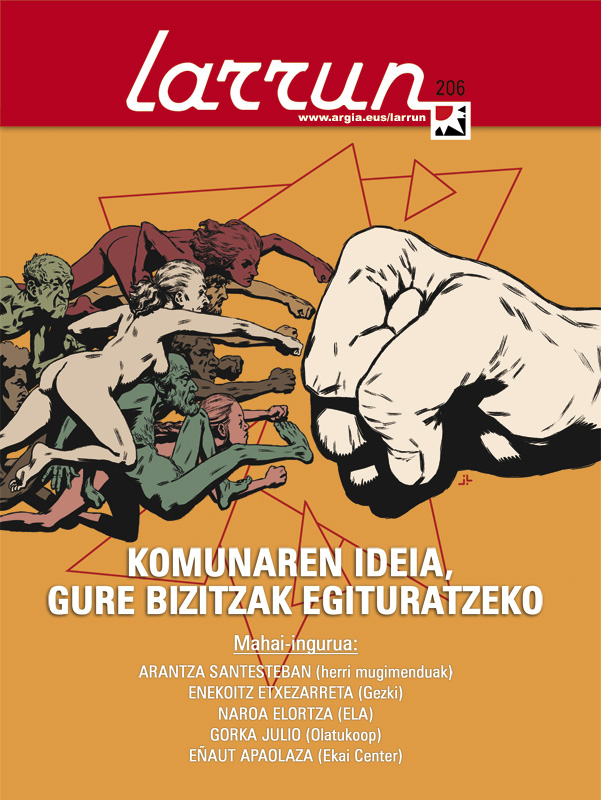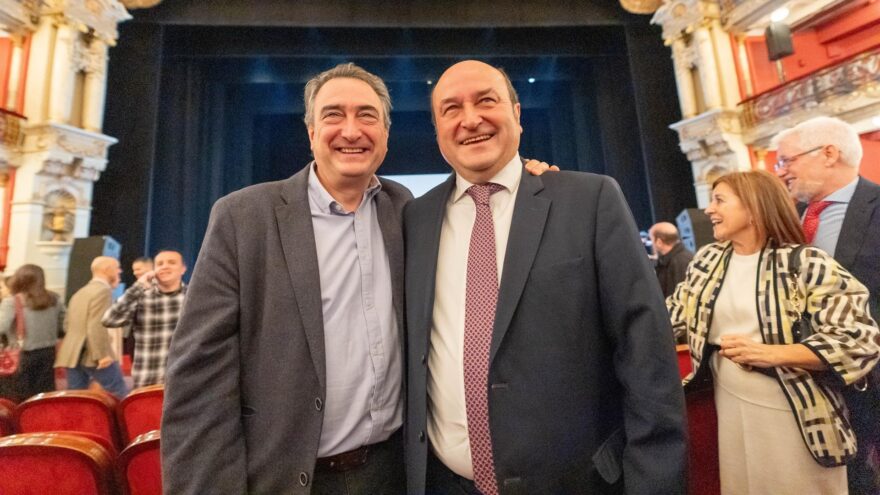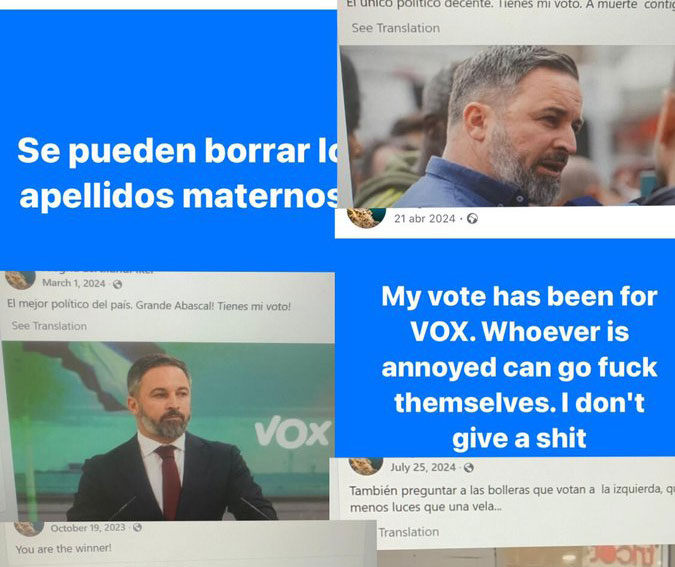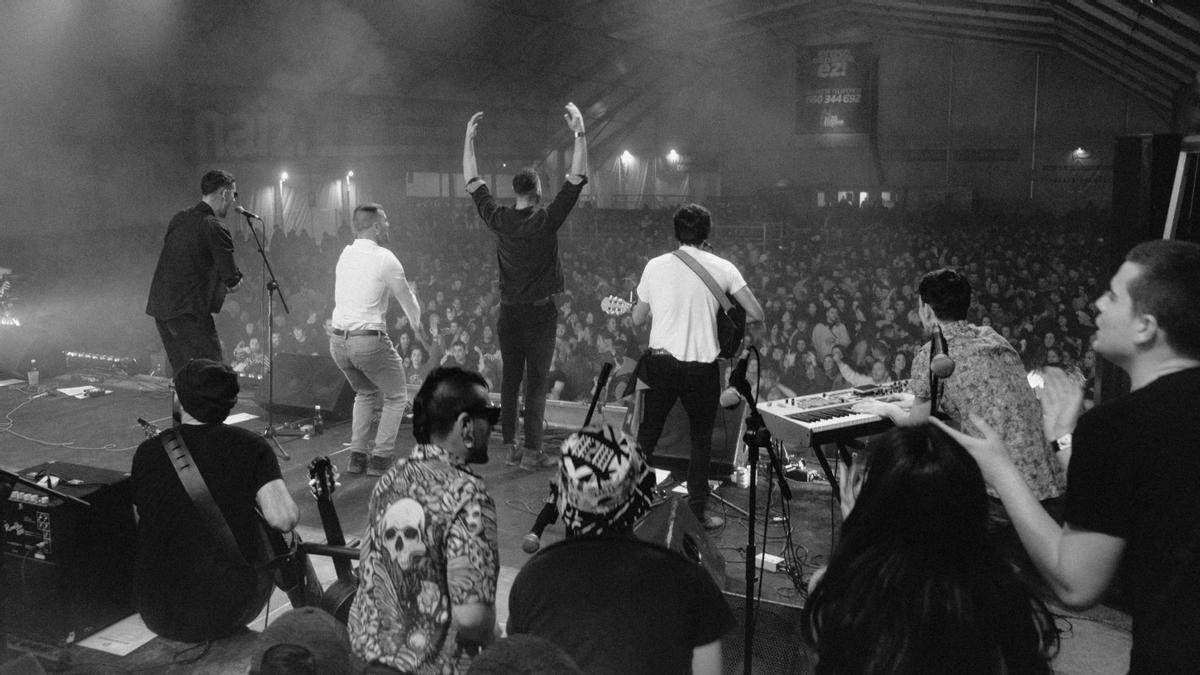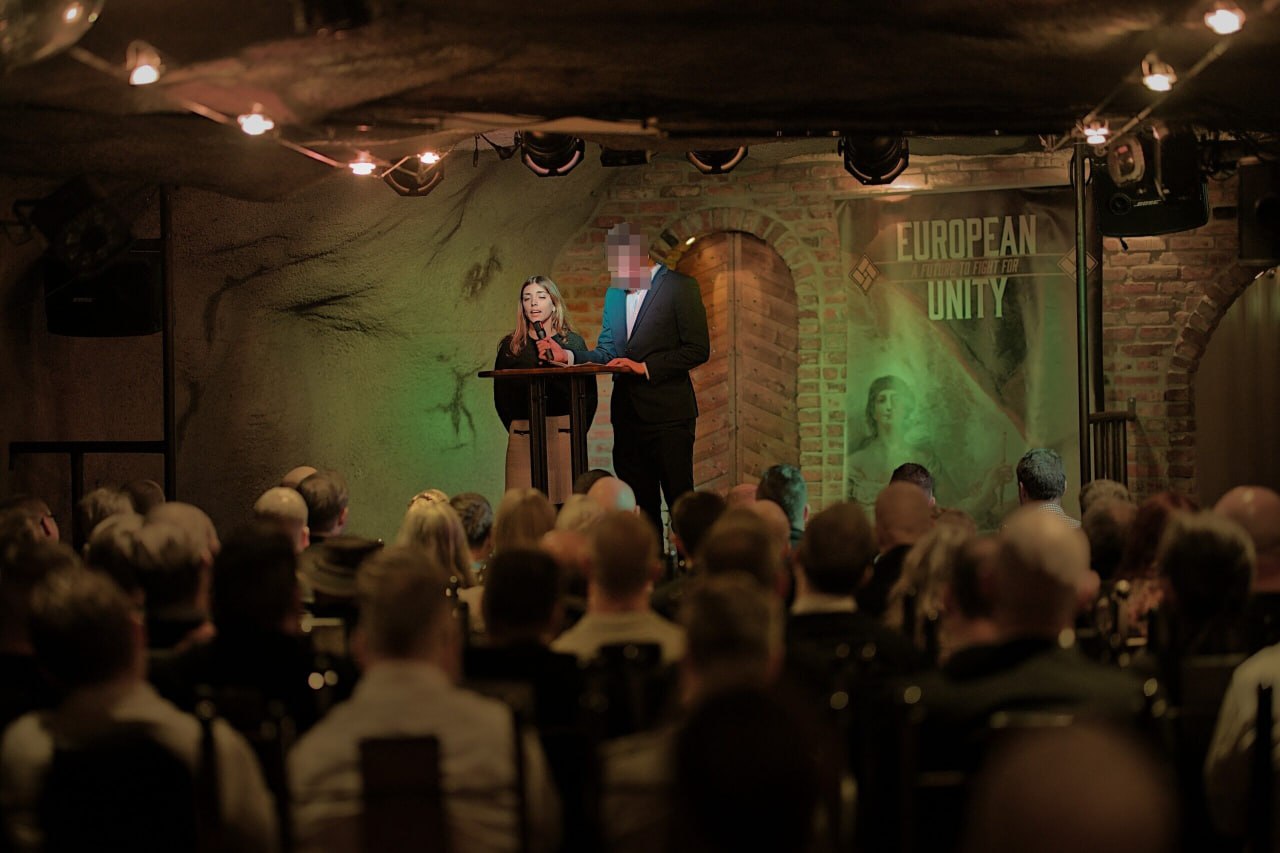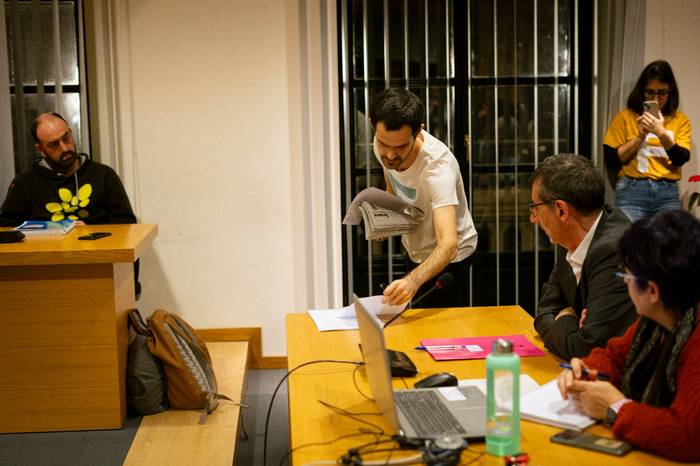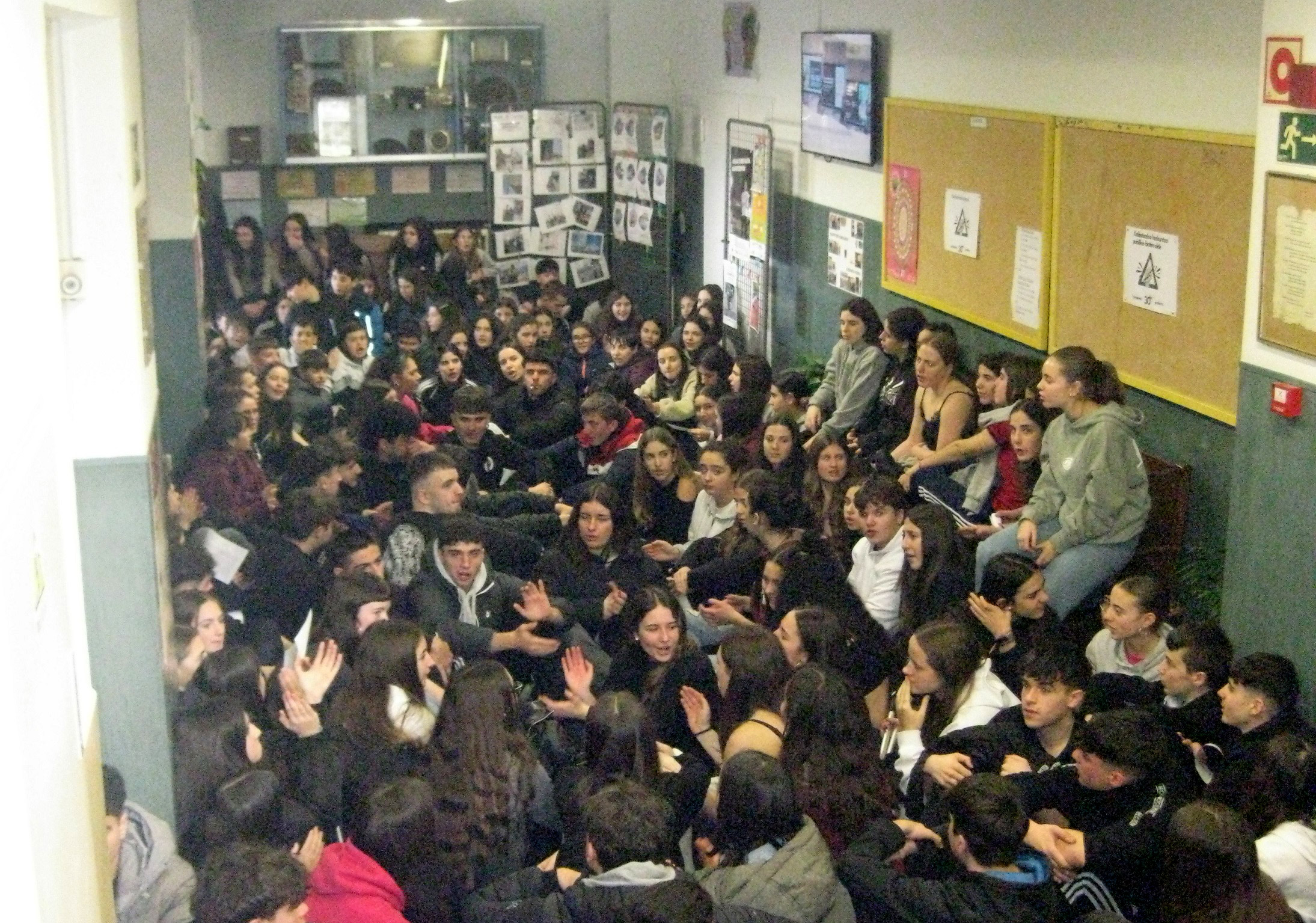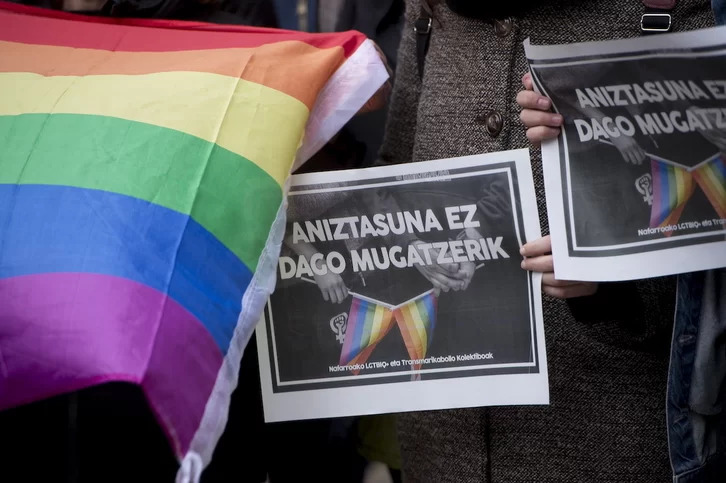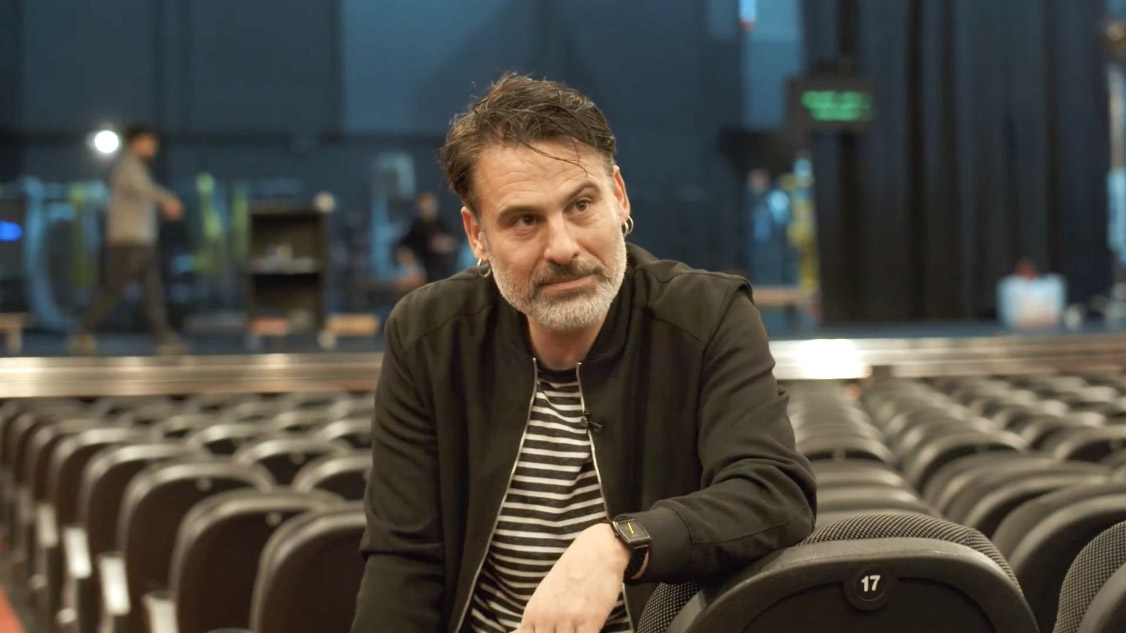Raising public awareness of the decision away from markets and states
- Citizenship demands increasingly direct and decisive participation in all areas of life. On the contrary, while new technologies and democratic culture give way to another model, we have state structures of the past based on the system of representation and on the delegation of the right to decide. When representatives eat the word they gave when voting or behave in a disobedient way towards social movements, what is exhausted is the legitimacy of the institutions (“do not represent us” has become here and there one of the slogans). And in the meantime, the mandate of state structures, governed by the enormous financial forces that we have not chosen the citizens, is becoming increasingly irreverent to us. Democratic decisions are not taken in the market, and the possibility of participation is denied to a growing wave of people: capitalism leaves more and more people out of the system, without basic resources to live and without voice and without the possibility of real participation in our organizations to structure life. The idea of the common helps us to propose alternatives, to see the models that exist in practice with other logics.
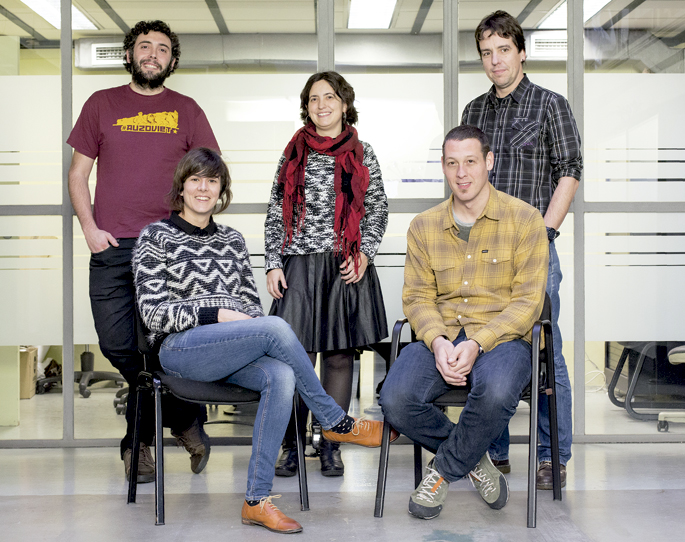
Are the structures we have in crisis to respond to current problems? Is the State-market/Family scheme exhausted?
Enekoitz Etxezarreta. Exhausted scheme? I do not think so. This scheme works very well for the capitalist system. And, thinking about the alternative, I can think of nothing that did not cover these three areas (state-market-family). With the adaptations of the time, the scheme has always responded to the logic of capital accumulation. It seems that the logic of accumulation of the last 30 years has been to turn the market into an omnivorous entity that has exceeded the scope of production and that wants to cover all areas of people’s lives: health, social services, body, labor relations, personal relations… and what it needs to open the markets is a minimum state, almost a state of guard, that organizes justice, police and little more. And it returns to the family all those social services that the state does not assume.
Naroa Elortza. In this scheme a fourth sphere is missing, quite developed in the local reality: self-managed spaces, experiences of cooperativism and herrigintza spheres. I would say that where the Community force is not so large, the misery caused by the crisis is greater, because the Community perspective gives more support. But as a result of the evolution of society in recent years, new needs have started to emerge in the Community and non-Community system: economic democratisation and an increase in the scope of decision. And in relation to the participation of the structures, there's a very precarious collective, which we often put aside when we talk about these parameters. Although areas of resilience and resilience are multiplying, there is a marginalized and oppressed collective. And we'll have to look at that if we want to create real change.
Arantza Santesteban. I do not know if the family is in crisis, I do not know if the state is in crisis and I do not know if the market is in crisis. When it comes to proposing the alternative or as a model for organizing our lives, they are not useful categories for us. But the ideology of the family, the ideology of the state and the ideology of the market still have a lot of strength. There are increasing demands on the Basque State as a political and economic structure fundamental to underpin our democracy... Today's State model is surely not a State that structured the alternative. But the state is the only way we have to acquire political power. And to structure our lives, we inescapably need political power. We have to rethink the state and give it a place within the framework of our alternative. For example, feminism is theorizing a lot about the feminist state and is working as an element of articulation: more and more feminists are articulated with the need for their own state. Because they understand that the state is political power, the way to take power, the way to make laws, and also the way to change the family structure or market structure through those laws. For example, it allows us to think of a new urbanism, where housing is not built according to the family, but based on other structures. Or it gives us the opportunity to think about the advertising that will change the rule of the market, or to create a mixed economy ...
R. Etxezarreta. I too would like to address the fourth area mentioned by Elorza: how it is called I do not know, the third sector, the social economy, the solidarity social economy, the transformative social economy ... And the concept that is gaining strength lately and needs to be observed is the idea of the common. I believe that the alternative cannot be the dissolution of the state, the family and the market. Rather, this idea of the common has to spill or influence the three areas: when we apply the idea of the common to the market, there are non-capitalist organizations, which are managed in a self-managed way, which come from the logic of social and collective movements... By rethinking the State, the idea of the common leads us to think that the State cannot be such a rigid hierarchical meritocratic entity. Sometimes it seems that when we defend a state against privatisation or against the market we are defending a classic state model. And I believe that we must also put our hands on this classic model of state. The idea of communion suggests a state that drops to scale, more participative, more decentralized, with greater participation of users and even public employees... Bringing the idea of the common to the family would surely lead us to the idea of parity, to sharing responsibilities ...
Eñaut Apaolaza. I agree with the toilet idea. But the current scheme has not been exhausted. This scheme can be understood as three main deposits: the State, the market and I instead of the family would say community (perhaps within the community the family is included). Depending on the number of components placed in each of them, the other two deposits are grouped there. The point is that the market (economic activity, major financial interests) has absorbed many of the space functions of the other two deposits, especially those of the State. And, as we have been told today, the main function of the State should theoretically be to seek the greatest possible benefit to the largest possible number of the population, to act according to the public benefit. But today it is not able to fulfil this function, as the market has devoured its scope (i.e. those who have the ability to guide the market), and if the role of the State is to seek a public benefit, the logic of the market prioritizes private profit. Economic planning (referred to as an Eastern Bloc account) is something that all states do. The problem is whether they do it for the benefit of those who do it, or only for the benefit of those who can influence the market. In these three areas, border spaces are interesting: the community and the state, the economy and the state, and the economy and the community. Depending on who influences most of these spaces, society will be of this kind. At this moment, the community has the responsibility of encouraging that the greatest benefit is for the greatest possible number, constructing new balances in this scheme. And there's a lot of experiences, but we need to match them all. Create a full narrative around it.
Gorka Julio. The private sphere is the strongest. The public sphere is cross-checked by the private sector with public-private consultation. More and more spaces have been stolen and managed to completely control them. The strength that a state has today is not the strength that it had a few years ago (Greece is the clearest example), although it has that strength in the heads of the people. There is a third area that we do not know how to call it, which has been very small (not so small in our country) and which for a few years can imagine another world, as it has managed to condition different areas elsewhere. I agree with the Apaolaza, which is the game at these intersections. And where's the toilet? In my opinion, we always forget an intersection: between the three fields, which would be right in the centre. And for me, that's the toilet. That is, it's not public, it's not private, it's not community. It's at the intersection of everybody and nobody can take it, it's everybody's at the same time as nobody. It's linked to the real community. The question is how we build communities to organize our lives differently and support each other. But overcoming these differences (public-private, productive, reproductive…).
A. Santesteban. Okay, you have to put the bathroom in the center, you have to think about it. And it can be a kind of intersectionality, something that structures it and goes through it all. But as Marina Garcés makes clear, “the bathroom is not paradise”, it is not who solves everything. Living in community, living together, is problematic. The toilet has its problems, its violence, its exclusions, violence...
You have explained that the current scheme is not exhausted, but you see the need to expand the bathroom space. Why or what to win?
A. Santesteban. The toilet can serve for a fundamental issue: overcoming the gap between productive and reproductive work. It can structure a framework in which productive and reproductive work feeds each other and is not structured according to sex or gender. I think the toilet can offer a way to share everything.
R. Etxezarreta. There is a myth in which we all fall: the state vs the market. This is the idea of social democracy, that is, the taking of the State as a counterhegemony or counterhegemony of the market. “We’re going to strengthen the state because that’s going to make a counterbalance to an uprooted market,” we say… I think not. The market is not possible without the state. Societies that do not have a state or centralized power, by anthropology, have no market. The state and the market, both in different balances, but both are very functional for the capitalist system. What the state and the market bring is to move power away from people's hands. What do we get with the toilet? In the words of feminism, empowerment, empowerment. Ability to decide whether the return to the public is yours. The same as the State and what the market has distanced.
R. The cure. For me, it's much more important to talk about other things than participation, when we talk about economics. What kind of economy we want, what kind of economic activities and what economic structures we are able to carry out... That is what determines everything else and the possibilities for employee participation. Many times the left is distracted, when it reaches the institutional level, it becomes blind to social spending. And it leaves all the rest of the field, how the economic structure is going to be, whether it's going to be participation, whether it's going to be individual or collective, in the hands of entrepreneurs. And social spending is a handsome thing if we realise everything behind it, that is to say, we have to organise our own economic structure for the benefit of all. Next we can talk about the weight of the social economy, the model of property that we want to put in those institutions ... In other words, if we opt for a financialised economy (and in Euskal Herria we are doing it at the moment), or for a service-oriented economy (which increases inequalities), it will be very difficult for us to talk about a truly large and conditioning social economy, or the participation of workers. If there is a stage prior to the democratization of economic activity, a people or a community must reflect and become aware of economic activity, its economic structure. From the point of view of the Left and to give maximum equality or maximum benefit to most people. In our case, I believe that we have been an industrialised society and that this has brought its good things, a certain equality, although it is true that excesses have occurred and that at times forms of exclusion have been promoted. It is also true that it has been very aggressive towards the environment. We are currently setting aside this industrial base to opt for a very low-level industry: we are moving towards an industry that plays with low wages for workers and we are going to put the main weight on services (“tertiarisation”). The financial economy increases the layers of poverty.
N. Elortza. With regard to what Apaolaza has said, I believe that we often do not turn around the scheme and the current logic. We talk about socioeconomic transformation, we want another model, another economy -- but I don't know if we reproduce the economy in the same schemes as before. Much more ethical, but in the same schemes. I know that the road to industry has given us something of what and knowledge, but perhaps we have to start to think about it at its root: What should be the basis and model of our economy? And we should focus on meeting our basic needs, because today they are not covered; food, housing -- integral sovereignty. Food comes to mind: we often talk about industry and services, but we do not seek sovereignty. From this perspective, if not, we can do a Mc Donald’s cooperatively and invest profits around, with the feeling that we are doing something different. And we wouldn't be doing something different. In cooperatives, for example, they strive to do things differently, distribute benefits and act according to democratic and ethical schemes, but what product or business is it based on? We have to take this comprehensive approach into account.
How can you make the toilet space bigger?
Dr. G. July. What we want to work on as a political project is to make that intersection between the three as big as possible. But this requires the ability to control the private space (reduce the private sphere), the public to occupy a larger volume and, above all, the Community economy to start structuring the existing small alternatives. I believe that the way forward for this is at the moment a public-community-cooperative concertation, albeit in the form of a transition and with its risks. It drafts the Community economy to make an alternative visible and to recover that area that has lost strength with the public. In my opinion, this is one of the ways. Without forgetting that, as Elorza said, those sectors that we have not offered alternatives to them must be priorities: the fight against precariousness, the debate on reproduction in its entirety ... If by building the alternative we don't bring everyone behind us, we have a party.
A. Santesteban. Jordi Via and Jordi García, in their fantastic book Economia solidària per a Catalunya lliure, present three legs for the transition of the common economies: first the public, but rethinking the public. Advertising should be approached in other logics rather than diarrhea, by participation and by bottom-up dynamics. Secondly, the area of the social and solidarity economy. It is here that the network of cooperative associations that will carry out production and reproduction is structured. And thirdly, there may be a mixed economy in which the private and the public will unite, but if the two above are strong, in the mixed economy we can also establish criteria of social and solidarity economy, and not the other way round, of the free market. I'm interested because I structure what may be common.
R. Etxezarreta. We can say that the current commitment is the Community level, the strengthening of the transformative social economy in alliance with the State... all right, but from experience we see that this also has its risks. The impetus of the social economy can also be another of the slimming strategies of the state. That is The Big Society, what Labour has done in Britain: to weaken the state after the myth of organised civil society and to dismantle the social state. So, watch out for who we're playing. We need to go into the debate on privatisation with care. And secondly, is the social solidarity economy the best and only alternative? It's already a pretty heterogeneous world. In this country, we have a solid cooperative experience, but it's not a very mature world in other countries, it's very anecdotal. They talked about the idea of intersectionality, and that's really interesting to sort of dot the logic itself to the rest of the areas, but also the influence comes back. For example, what has happened to cooperatives in Euskal Herria? Cooperatives were going to change the market, but the market has changed cooperatives. It may happen that cooperativism and popular movements will change the state and change its states. I see these risks, we can fall from a left-wing approach by playing privatisation policies.
R. The cure. What worries me is that all these alternative experiences can go a long way, although in some places they are getting a little centrality. They are partly anecdotal, next to the “standard format” of economic activity. The question is how they can actually achieve an influence capacity. There is nothing else to do with the difference between cooperatives and other companies. There are missing intermediate figures of transition between these experiences and the “standard format”. And of course, all of this needs something to pick it up. It is an extreme necessity. Otherwise, they are very atomized areas.
A. Santesteban. Yes, at the moment they are marginal things, and I think we need transitional figures and ideological elements. I don't know if it's that collective narrative that Apaolaza said -- something that brings it all together. Does independence have to be? For I would like, the discourse of independence, to link the ideology of independence with those elements. That's what we're missing, putting those little alternatives together into something.
Dr. G. July. We are constantly saying that we want a state, but how? There in the global debates, there's a figure that comes from P2P Foundation, and it's the Partner State figure. In other words, the State promotes models of social economy and builds an organization that facilitates proposals that come from the community. Maybe it's a form of transition. We need a unifying line, linking the struggles and channelling the debate: How do we create tools that will help us to have a possible state and at the same time help us learn?
R. Etxezarreta. I am afraid that we are not representing an impossible alternative. We need transitional figures, but should all their weight be taken by this other Community framework? For example, to propose the alternative to the banking sector through self-organization... They're great words! It is perhaps easier to design public banking in the first phase and to regain control of citizenship. And in a second round, decentralizing to the maximum that bank, making it participative, etc. Energy also raises questions for me. In order to make a kind of counterbalance and an alternative to the interests behind it, we may have to think about going back all those steps of privatization ... Mr Santesteban, you talked about the need for ideological work, a story that gathers all these experiences, a speech, independence. In this we enter into a new discussion about those things and hegemonies. Why don't people partner with Goiener? Because it's not yet a hegemonic element. The hegemonic thing is that something so ordinary, so acceptable. I see weaknesses in independence, but I see great potential for self-organization to build a political-hegemonic discourse, and it's not so biased to a concrete ideological tendency, what's not in favor of making the decisions that correspond to it? I want to make my own decisions. That's what we have to bring to all areas of our lives. You can also make a state from the idea of self-organization and build it in a bottom-up scheme.
Dr. G. July. This is an example of the debate that you are now going to have in Europe Varoufakis-y. In other words, it is not a state, democracy is linked to loss and it is almost a political meme that they have created, the idea of recovering lost democracy, the discourse of sovereignty in substance, but at European level. In a way that is more global and that will try to influence that area of decision and that will then go down to the states, and as we are without a state, we will see how we do it. We also have to create political memes of this kind, because we still do not know whether the axis is the state, whether it is independence ...
R. The cure. Are we talking about sovereignty, one way or another? The state is not only a formal legal structure, if it is a state, but also a way for a community to have control of the means to ensure its future. We are therefore talking about sovereignty.
Let's go to examples: from the point of view of the common, what kind of public institutions, what economic practices and what experiences of popular movement should we go to? What examples of those you speak are in the head (be they Basque or international)?
R. Etxezarreta. In Euskal Herria, we have more than one example, each with its own logic. The development of MONDRAGON’s cooperativism (with all its debates, with all the problems of internationalization...) is an experience built on the common (especially industrial). Another area is the movement of the ikastolas and at the basis of all of them is self-organisation, which can then become economic activity. The third area belongs to the orbit of the solidarity economy: The network that REAS can implement, the network of companies operating under certain values and the monitoring of those values through social audits... If necessary, this network is very focused on the integration of groups with difficulties of access to the labour market. And it's the usual debate, why isn't it a public service? As long as public services do not guarantee it, it is created from the community.
N. Elortza. You spoke of publishing the areas of integration, Etxezarreta. I think it is key to strengthen public services, to meet the basic needs of society as a whole. However, I do not believe that the public system should be limited to the granting of subsidies. And today, most of all, it's done like this. I believe that the public framework should further ensure coordination, cooperation between actors promoting integration. Comprehensive integration must be sought, and to that end Community movements are key. We need to work in depth on the relationship between the Community network and the public network.
R. Etxezarreta. As can be seen in the examples cited, there is a strong fabric in this people. Without making a new mystification of auzolan, but we have some membranes. Where should the toilet idea come from? The answer that I have the least political contradictions is that the idea of communion must be directed to those spaces in which the market wants to appropriate itself and fails to protect the States. For example, at international level (indigenous communities, Italy...) water movements have great political potential. They do not propose public management, but municipal management through the participation of water users. There can be the main gap: in areas where the state does not arrive and the market wants to take ownership. Within this, at Gezki we are working on the identification and elaboration of two main areas: one is the area of care, the creation of cooperatives of caregivers. Here too there are models, such as Italian social cooperatives. And the other area is housing. Do we all need housing and what does the market offer? lifetime mortgage. And what does the state offer? A draw. The model for the construction of community housing is another of the issues that we have to work on.
R. The cure. Here came a popular cooperative educational system in its time and has remained in time. The associated working cooperatives are the uniqueness of the Basque Country and their contribution to cooperativism, that is, I believe that the fact that workers are partners does not occur anywhere else in the world. What areas to reach? They are renewable energies, they can be very democratic and they can create cracks in the oligopoly today. In the case of energy, surely the obstacles existing at this moment of expansion and democratization of the social economy are for that reason: at a given moment, energy oligopolies saw that they were going to have an increasingly longer journey and that they can go from anecdotal to “standard format”. That is why they have been hindered, and that is why there are revolving doors between politics and the energy oligopoly.
N. Elortza. I see three clear areas to develop the idea of the common: on the one hand, the popular movements that Etxezarreta mentioned, which work within the concepts of self-management and community: cultural groups, the Basque Country, leisure, free radios… on the other, the cooperative movement and the unionism in the labor world are very powerful examples in Euskal Herria and in them there is much to learn and take into account. But I would like to highlight a third area that goes beyond the working world and which is an example of the strength of the local network: new experiences related to agriculture and food, which bring consumers and producers together. Consumer groups or consumer cooperatives already come (Eroski was in his day), but this new model involves a change of line or a collaboration: not only does the perspective of worker work, but it is a movement that sees the whole system. In what other areas will the idea of the common be worked on? We should get a powerful network of self-managed agents that really show resilience in the face of difficult situations. Our obligation should be to create a network that meets the basic needs of the community. Not with the logic of assistentialism, but creating spaces of collective empowerment.
R. The cure. You've talked about food, Elortza. I think these are very important experiences like ErriGora. Food and economic relations within the country, which have been creating other kinds of relationships, and creating market ties that were broken. It is highly visible, since stable and compact market relations bring with them social and political structures.
A. Santesteban. Another example may be Olatukoop: on their return they are immersed in cooperative experiences. Or the benches of time -- there's a lot of collective experience. In Euskal Herria, people meet immediately and make an institution for everything. The community has strength. That is where the alternatives come from.
Dr. G. July. I like to classify the projects according to the degree of commitment of the people. The first level of commitment, very low, is consumption. We have a thousand examples for consumption: financial institutions (Koop57, Fiare), energy (Goiener, SomEnergia)... and that network should be done, I do not know why we are not doing it. We are discussing at global level the idea of the cooperative platform, that is to say, placing such alternatives on an open platform to facilitate people’s access to these routes. But as for the level of commitment, if we go up and up, the most urgent projects appear right at the end. That is, health, care... are the most committed, but at the same time the most necessary. There are models such as housing proposals in Northern Europe or care proposals in Italy...
Following the examples of self-organization you have set: these experiences of innate self-organization have come a long way and have sometimes been submerged in the logics of the market and of institutionalization. Is self-organization enough to realize the idea of the common? Or on what basis should an initiative be sustained?
Dr. G. July. In all those examples we have mentioned, it is true that we do not dare to say that many need a second round. Because they have been very referential and exemplary. At Olatukoop, we believe that the model needs renewal, and to do so we have set limits: ownership, decision-making capacity or economic democracy. Transparency, that is to say, that all its members have access to all the information and resources that are useful for their self-management. And strengthen personal and community solidarity from autonomy. I mean, we can only be aware that we can't do it, with friends, and keep it. The community must also have an acceptable relationship with society: on the one hand, it must make a contribution to the common heritage and, on the other, the will to achieve everything it wants for society as a whole. That the Entity pursues all those rights that it wishes to assert within it, including for society. With these guarantees, we wanted to put the barrier up. If what is in Spanish is “social economy and solidarity” we define it as “transformative social economy”, it is precisely because we want to maintain the status of transformer. Because we want to make our practice a proactive act. It's going to cost us to be a central model, but because the transformative social economy puts life at the center, our desire is to put the transformative social economy at the center of the economy. And there is a possibility that the area it occupies will be larger and be able to condition it.
R. Etxezarreta. Of course, with the Mondragon Group, we are critical, we learn everything we have learned from criticism. What is the guarantee of maintaining the idea of common? What was the Mondragon problem, the lack of value? Perhaps not, the problem with Mondragon is that there may have been no social muscle to track those values, to keep those values true. The key is not so much what values we are working on, the premise is that behind those values there is always an organised civil society. There is no other way. We can do the best literature in the world by saying that our institutions are of another kind, but they are born, they develop, they die -- and whoever keeps the tension on this whole path has to be organised civil society. In any area: state, market...
Dr. G. July. But when the governance model sets aside the forms that come from the cooperative model, for example, when it becomes a corporation, the organized society can make very little effort. The organization behaves in the logic of capitalism, and it doesn't matter how many people are behind it. When you place a structure based on the representation above, it becomes a hierarchical structure that directs the entire structure. It doesn't matter how many people are behind society, because that other is the center of decision. What has to be guaranteed by another economy is not values, but is a model of controlled governance. That is what has left us.
N. Elortza. Etxezarreta, I completely agree that organised society is the key. July, we can talk a lot about the creation of the corporation, but the governance model will be guided by workers or individuals, as long as they are organized. Because we've seen what happens when they become very individualized cooperatives, when people just think about themselves ...
Dr. G. July. So is it a value problem?
N. Elortza. No, a compromise problem.
Dr. G. July. So is it also a problem of value, which has lost the commitment that was there? Have people lost the ability to self-manage within an economic structure?
N. Elortza. When necessary, people and groups form themselves to respond to needs. We will be very generous and politically very idealistic and whatever you want, but we do not organize until we feel the real need, both in the cooperative and in the Basque associations... It is not so much the loss of value, but it has achieved well-being, it has been introduced into comfort and that weakens self-organization and collective strength.
R. The cure. I fully identify with self-organization, but I'm afraid we create a myth. The experience of self-organization at the moment is far from normal. Maybe education is the exception. But despite the weight Mondragon has in the industry, in the Basque Country only 4-5% of the economy is cooperative. With other figures in the social economy, it can account for a quarter of economic activity. But the plurality of the figures and the lack of unity take away their visibility. The social economy is not perceived as a unit, which limits its strength and its capacity to influence. That is not normal, let alone normal. So if we think that from self-organization we can build the whole of society, at this point we are a bit far from it. The transition figures mentioned above are important.
The very democratisation of the institutions gives a great deal of thought. It's much more important that those institutions, whether public or private, serve for something and not just for a few. The characteristics of the preference, for example cooperatives and democratic ones, are shown below.
R. Etxezarreta. Apaolaza, I like the exercise you're doing to demystify participation. But in part I disagree. “People’s participation is not so important, what matters is the public or the private, that it works well to benefit as many people as possible,” he said. And for me, that is absolutely linked, as Marx said, to the ownership of the means of production. Either we democratize the structures of ownership, and that is participation, or we go to the current scheme: of course the market works very well to accumulate wealth, but to see who redistributes the wealth generated! States? Hardly. An organization that works for the benefit of the majority (I do not care whether it is public, private..) must have at its heart the idea of democracy, the idea of participation, the idea of self-organization. I see no other way.
R. The cure. It's probably related. But if we mystify and provide absolute centrality to participation, we forget to create an appropriate economic space to materialize participation, generate something to share wealth and live well.
R. Etxezarreta. Participation is therefore necessary, but not sufficient.
And what is the real participation of organized individuals or groups? Is the gap between those who can and cannot participate in society not widening?
N. Elortza. The latest statements by Iñigo Urkullu come to mind: “I am concerned that irresponsible social movements will condition Catalonia.” What the government and the present ideology want is for people to act as individuals. He doesn't want well-organized people, because that puts power into question. The same is true of employers, who talk about the participation of workers, who manage to tread on them by negotiating one by one with the workers. The same happens in participative budgets and in these cases, institutions are not invited, citizens are invited individually. This is a key issue, as agents are very important in society, but they are not wanted in decision-making spaces, as an organized force. Power doesn't care.
A. Santesteban. Before participation there is a prerequisite: capitalism generates more and more people living in precariousness and has marginalized many sectors of the system. Before thinking about participation, we have to do this previous work: we have to see what the sectors, the people, the subjects who at this moment have difficulty participating in the system... What will we do with all the staff who are not in the workplace? They have been greatly reduced by means of participation, they are not in business. What are we going to do with people who don't have paper or I don't know what situation they're in? As for gender or gender, how will we ensure balanced participation? As for the origin, the same ... And what is the subject? All this alternative that we're talking about, who's doing it, who's living it, who's defending it, who's generating that active mass that's going to press? A political project or an alternative had the first subject much more structured, with these categories established in modernity: the working class, the nation... nowadays we are not worth these categories to articulate the subject. They serve us to identify oppression or as an analysis category: class, gender, origin... New categories must be created that respond to all these political subjectivities. We don't know what they are, we have to create them along the way, we can't predefine them ...
Dr. G. July. We have to imagine that world of tomorrow, but the previous world is not over; the oppressions there have helped us to devour a story. For me, class struggle is still a valid term, even if it is to define a struggle that we are losing. But I know it's a category from the old world. To imagine the world of tomorrow we must not forget the previous world: there are the denunciation of the working conditions of companies, the strengthening of the fight against precariousness, the inclusion of the issue of reproduction, the demands for access to basic income, the debate on participation models, radical demands on the ownership of productive resources or the debate on business models and business transformations... I would propose two lanes: how to continue giving an answer to the previous world and never leave these people behind, and at the same time carry out initiatives to structure the subject. What is the subject? I know... but I liked what could be imagined in the People of Alternatives. It's something I say from a very big feeling. It was seen that there is a force and that we can be more. These kinds of experiences will give us a path.
R. The cure. If these experiences do not have a specific political objective at a given moment, and do not appear in a political way, achieving a state or a State structure, they remain in a small area and lose the hatch over time. An example of this today are local currencies. They're losing strength. Why? Because they haven't overcome the sentimental phase by calling it somehow.
Dr. G. July. That's the key, how do you do it? For me, the People of Alternatives is an interesting initiative to channel that constituent subject. The question is how we can turn it into an initiative of sovereignty, self-organisation or of a state nature.
R. Etxezarreta. There are very substantial debates about subjects. Because the solidarity social economy is theorized in some countries as the economy of the poor, “let us remember the people who are precarious and that the path given to them is about values”. And others say that participation is a privilege of the rich! Not the economy of the poor or the privilege of the rich, it is always, for all or for no one! That is why I believe that the hegemonic concept of self-training is valid for everyone. I am not a state that has to resolve precariousness. I am precarious and we will work together on the idea of self-organization, participation, the creation of subjects... or all or none. Otherwise, it's a party.
Gorka Julio Hurtado. Olatukoop, Ekonomia Sozial eta Eraldatzailea Sustatzeko Elkarteko kidea
Errenterian jaioa, 1982an. Informatikako Ingeniari Teknikoa. Egun, Talaios Kooperatibako kide da eta aholkularitza teknologiko, ekonomiko eta soziala eskaintzen du. Mondragon Unibertsitateko LEINN graduan irakasle ere bada.
Arantza Santesteban Perez. Herri mugimenduetan aritua
Iruñean jaioa, 1979an. Historian lizentziatua. Ekintzailea politikan eta feminismoan. Besteak beste, Komunikazio parekiderantz Kazetarientzako Eskuliburuaren egilea da. Azken aldian Ipar Hegoa fundazioan aritu da komunikazio lanetan. ARGIAko kolaboratzailea ere bada.
Naroa Elortza Gorrotxategi. ELA
Arrasaten jaioa, 1983an. Ikasketaz ingeniari informatikoa, egun sindikatuan dihardu. Aurretik, Mondragon Unibertsitateko Lanki institutuan irakasle aritu zen eta Bagara elkarteak abiatutako EreindaJan (kontsumitzaile eta ekoizleen elkartea) proiektuaren koordinatzailea ere izan zen.
Enekoitz Etxezarreta Etxarri. Gezki, Gizarte Ekonomia eta Zuzenbide Kooperatiboaren Institutuko kidea
Donostian jaioa, 1981ean. Ekonomian doktorea eta Gizarte eta Kultur Antropologian lizentziatua. Egun, EHUko Ekonomia Aplikatuko irakaslea da eta GEZKIn gizarte zerbitzuen esparruan diharduten eta sor litezkeen autoeraketa esperientzien ikerlari eta bultzatzaile.
Eñaut Apaolaza Amenabar. EKAIko partaidea
Donostian jaioa, 1970eko hamarkada amaieran. Zuzenbidean lizentziaduna. Hainbat kooperatiba eta herri mugimendutan lan egin izan du: EMUNen, Mondragon Unibertsitateko Lanki institutuan, AEKn, Ekai Center-en...
Vagina Shadow(iko)
Group: The Mud Flowers.
The actors: Araitz Katarain, Janire Arrizabalaga and Izaro Bilbao.
Directed by: by Iraitz Lizarraga.
When: February 2nd.
In which: In the Usurbil Fire Room.







